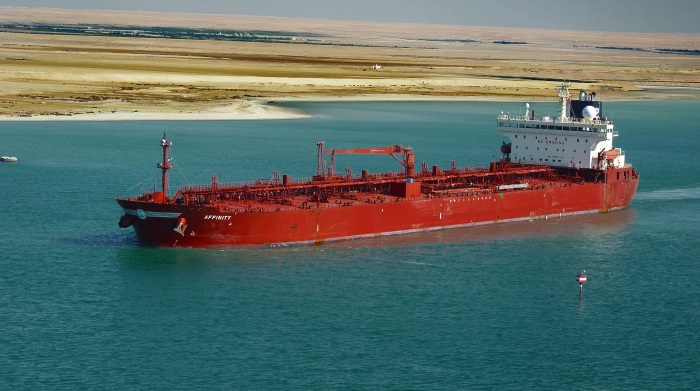Leading crude exporter Saudi Arabia is maximising refining profits by importing unprecedented amounts of cheap Russian diesel and in turn shipping record volumes to Singapore, where the fuel can achieve higher margins, shiptracking data shows.
Russia has had to divert the volumes it sold to Europe, previously its dominant product market, after the European Union banned oil product imports in February as part of its response to Moscow’s invasion of Ukraine.
That allowed state oil giant Saudi Aramco to increase its May imports to Singapore to record levels and cash in on better arbitrage netbacks in the east than Europe, driven by tighter Asian supply during the maintenance season, traders and analysts said.
“Diesel supply in Singapore is relatively tight due to regional refinery maintenance, while Middle East supplies are rising, which may create spot arbitrage opportunities for traders to move the cargoes (to Singapore),” Vortexa’s head of APAC analysis Serena Huang said.
Saudi Arabia will import up to 500,000 tonnes (3.7 million barrels) or more of Russian diesel in May, with most of it arriving at Ras Tanura, where one of Saudi Aramco’s 2222.SE refineries is located, two trading sources, Kpler and Refinitiv showed.
At the same time, diesel from Saudi Arabia arriving in Singapore is set to hit 400,000 tonnes – an unprecedented level, data from Refinitiv, Vortexa and two industry sources found. The sources asked for anonymity because they were not authorised to speak to the media.
The rise in Saudi supplies could replenish Singapore stocks as exports from northeast Asia fall during the refinery overhaul season between May and July, the sources added.
Russian 10 ppm sulphur gasoil cargoes are traded at discounts of around $30 a barrel to free-on-board Middle East quotes, versus Asia’s spot premiums for the same grade at 16 cents a barrel to Singapore quotes, according to trade sources and Refinitiv data. GO10-SIN-DIF
Globally, Saudi’s diesel exports in April hit an all-time high of around 3.7 million tonnes, Kpler data showed. Jizan refinery, solely owned by Aramco, had been expected to increase diesel exports when crude runs stabilise.
Aramco declined to comment.
FGE analyst Lu Yawen said more Middle East gasoil cargoes were heading east rather than west to Europe, where high inventories and weak economic growth have depressed prices.
Falling freight costs also aided the arbitrage flow, two other oil and shipping analysts said.
The cost to charter a Long Range (LR) vessel on the Middle East to Singapore route has dropped to slightly below $25 a tonne from around $34 a tonne in the last two months, they added. That is half the cost for the same ship to travel to Europe, they said.
Global diesel supplies have increased since the start of 2023, with China and the Middle East ramping up exports and as mild winter in Europe capped demand, helping to reduce prices.
Asia’s 10 ppm sulphur gasoil spot premiums GO10-SIN-DIF and refining margins GO10SGCKMc1 have fallen by more than $8 and $1.50 a barrel, respectively, in the last two months, Refinitiv Eikon data showed.
Additions to refinery capacity of 700,000 barrels a day expected this year will further pressure east-of-Suez gasoil margins, Energy Aspects said in a note. The capacity includes units that are ramping up and will come online later this year.
Source: Hellenic Shipping News





